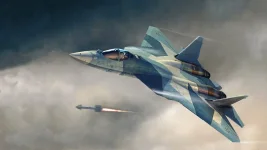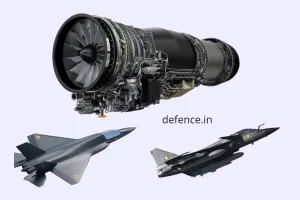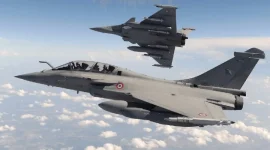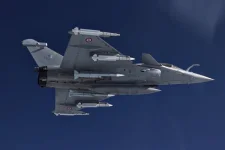- Views: 3K
- Replies: 7
The VT-4 main battle tank (MBT), produced by China North Industries Corporation (Norinco) and promoted as an advanced armoured vehicle, is facing serious questions regarding its performance and dependability.
Reports from Nigeria and Pakistan, two key operators, indicate significant operational challenges and mechanical failures, casting doubt on the tank's effectiveness and the procurement decisions made by these nations.
Nigeria's military acquired 35 VT-4 tanks under a reported $152 million agreement with Norinco, receiving the initial batch in April 2020. These tanks were intended to significantly enhance the Nigerian Army's capabilities in its ongoing fight against insurgents in the country's northeast.
However, a recent combat incident saw one of these VT-4s destroyed during engagement with a local armed group, possibly associated with Boko Haram, marking a considerable setback for the army's counterinsurgency operations where armoured vehicles are crucial.
Further undermining confidence in the platform, Nigerian defence sources have reported critical failures. During a military demonstration observed by high-ranking army officials, a VT-4 reportedly failed to fire its main cannon.
Additionally, Nigerian media outlets confirm the VT-4 fleet suffers from persistent breakdowns and difficulties obtaining necessary spare parts, leaving numerous tanks non-operational. A similar incident occurred publicly in November 2024 when a VT-4 reportedly broke down during a dynamic display at the Zhuhai Air Show in China.
These recurring issues raise concerns about the tank's build quality and Norinco's commitment to providing adequate after-sales support to its international clients.
Pakistan, another major customer for the VT-4, is experiencing similar difficulties. The Pakistan Army initially planned to acquire a large number of VT-4s (reportedly aiming for 468 units initially, though some sources reported different figures for licensed production deals) to modernise its armoured corps alongside its domestically produced Al-Khalid tanks.
However, the army significantly reduced its order to 258 units in 2025, signalling potential dissatisfaction with the VT-4's capabilities and echoing previous issues encountered with Chinese-origin armoured vehicles.
The Al-Khalid tank program itself provides relevant context. Developed jointly by Pakistan's Heavy Industries Taxila (HIT) and Norinco, based on the Chinese VT-1A (also known as MBT-2000), the Al-Khalid project has faced its own hurdles.
Production reportedly stalled at approximately 250 units due to ongoing design problems and technical difficulties, particularly concerning its powertrain and fire control systems sourced from Ukraine.
The VT-4, marketed as a superior "3.5-generation" tank featuring upgrades like a more powerful engine (1,200 hp), modern electronics, and enhanced armour compared to the VT-1A, was anticipated to rectify these deficiencies. However, its performance, even with local assembly planned at HIT, has reportedly failed to meet expectations.
Within Pakistan, criticism has surfaced regarding the procurement process. Some observers allege that poor management and potentially corrupt dealings among military figures may have led to the acquisition of inadequate equipment, placing a financial burden on the country without delivering the required operational capability.
The VT-4's perceived underperformance fuels claims that cost considerations and strategic ties with China might have been prioritised over battlefield effectiveness.
The difficulties encountered by both Nigeria and Pakistan with the VT-4 appear to fit a pattern sometimes associated with Chinese military exports: impressive technical specifications that are not consistently matched by real-world reliability or dependable long-term support.
In Nigeria, the tank's functional failures in both combat and training scenarios point to potential weaknesses in its fundamental design or maintenance infrastructure. In Pakistan, the reduced order size and similarities to the Al-Khalid's challenges suggest the VT-4 has not fulfilled its promise as a state-of-the-art MBT.
Norinco presented the VT-4 as a showcase of Chinese advances in armoured vehicle technology. Its features include a 125mm smoothbore main gun equipped with an autoloader, modular composite armour augmented with explosive reactive armour (ERA), and advanced digital command and communication systems.
However, the operational reports suggest these technological enhancements may not translate into consistent battlefield performance. For Nigeria, the shortage of spares and frequent mechanical issues severely hamper the tank's utility against insurgents. For Pakistan, these problems add pressure to an already challenging armoured defence posture, particularly considering neighbouring India's deployment of modern T-90S tanks and its own Arjun MBT program.
These repeated incidents place Norinco's reputation as a major international arms dealer under scrutiny. The VT-4 has been exported to Thailand, Nigeria, and Pakistan, representing a significant part of China's defence export strategy. Consistent reports of underperformance, however, could dissuade potential future customers who seek reliable and cost-effective military hardware.
For Nigeria and Pakistan, the consequences are immediate, potentially involving compromised military readiness and significant financial investment yielding limited returns, particularly critical given the security challenges both nations currently face.
Nigeria may need to reconsider its procurement strategies and explore other options, although financial limitations could restrict its choices. Pakistan's reduced VT-4 order and the ongoing issues with the Al-Khalid might necessitate exploring alternative suppliers, though the strong strategic relationship between Pakistan and China could make such a shift complex in the near future.




